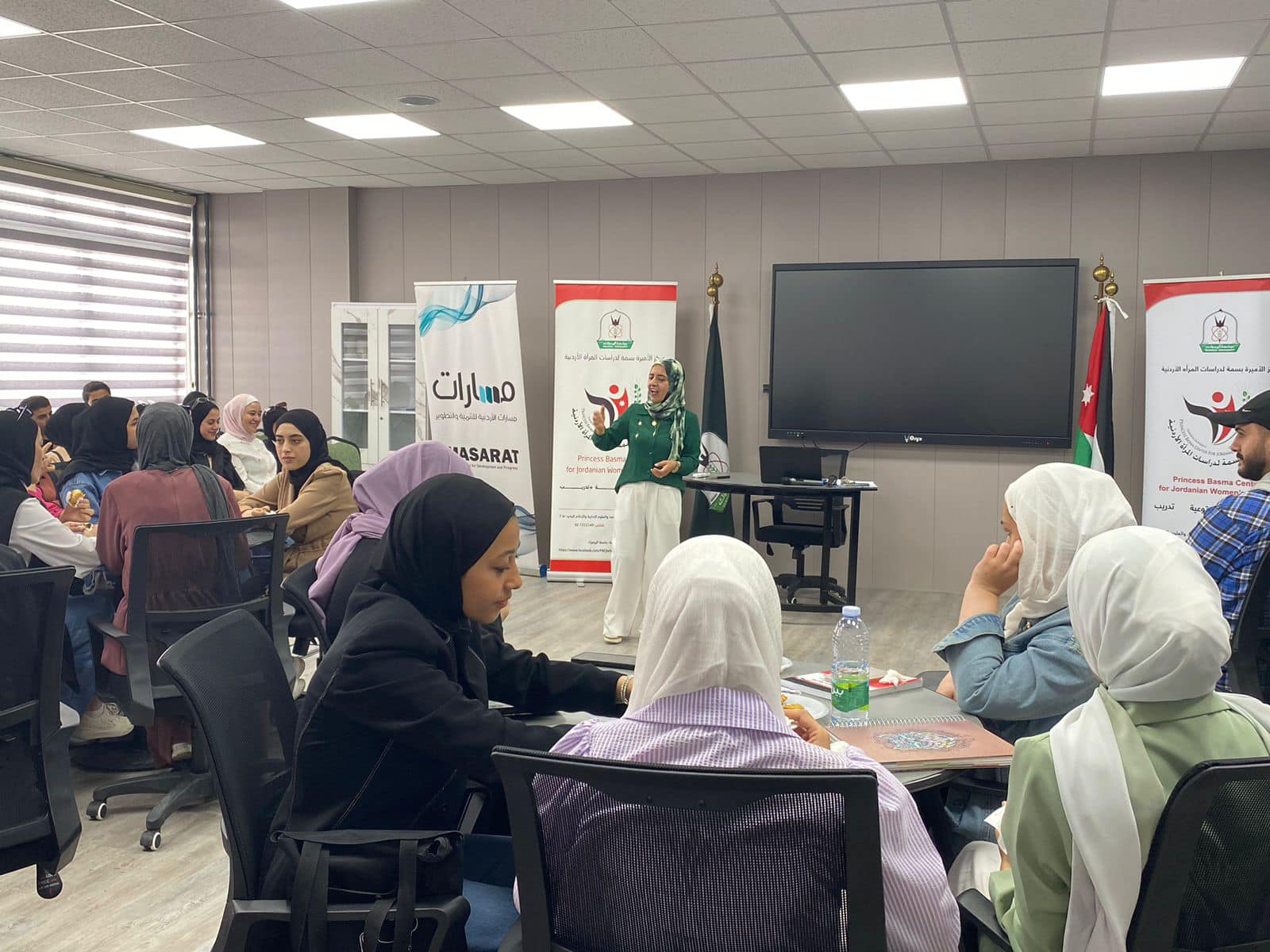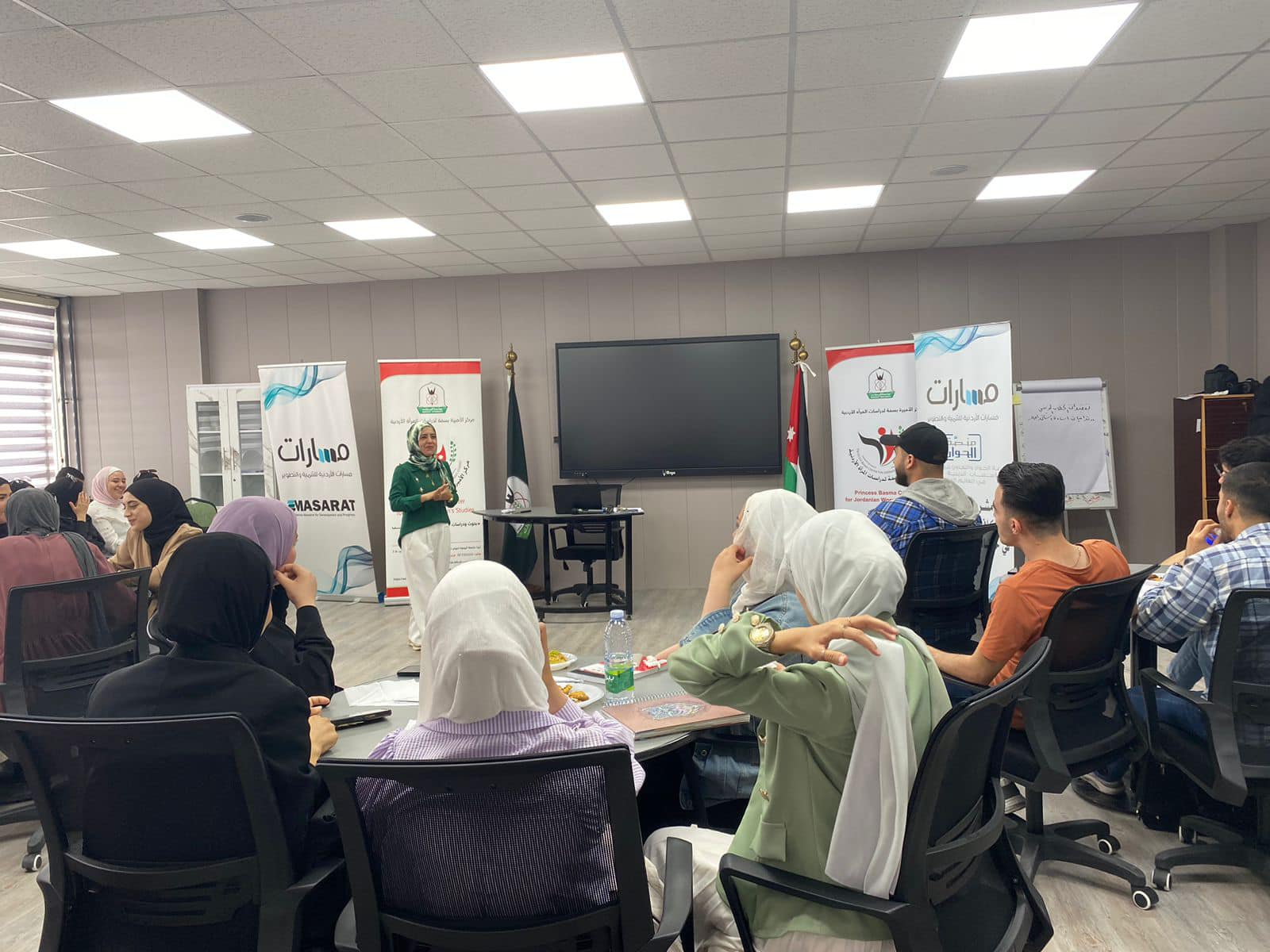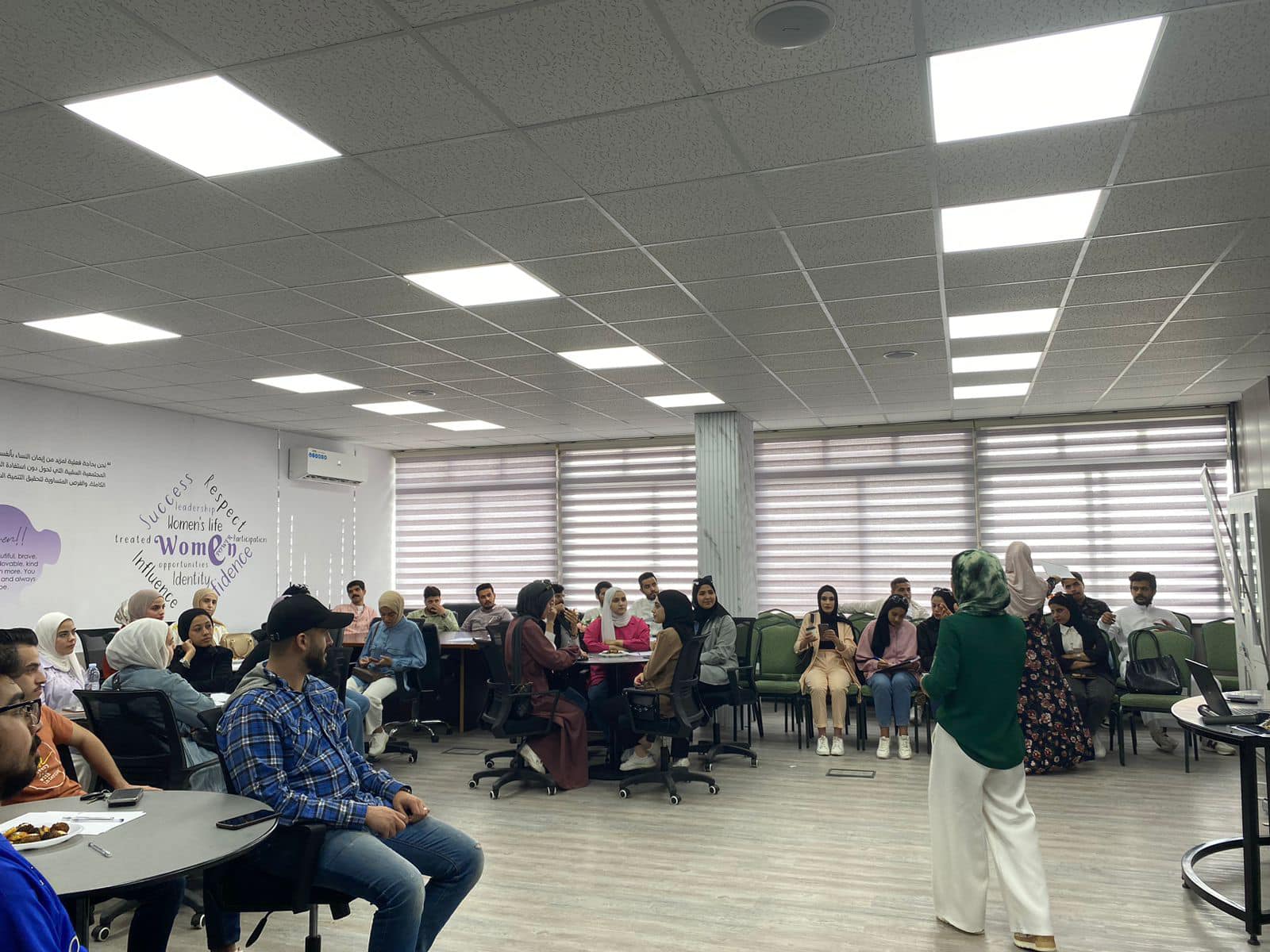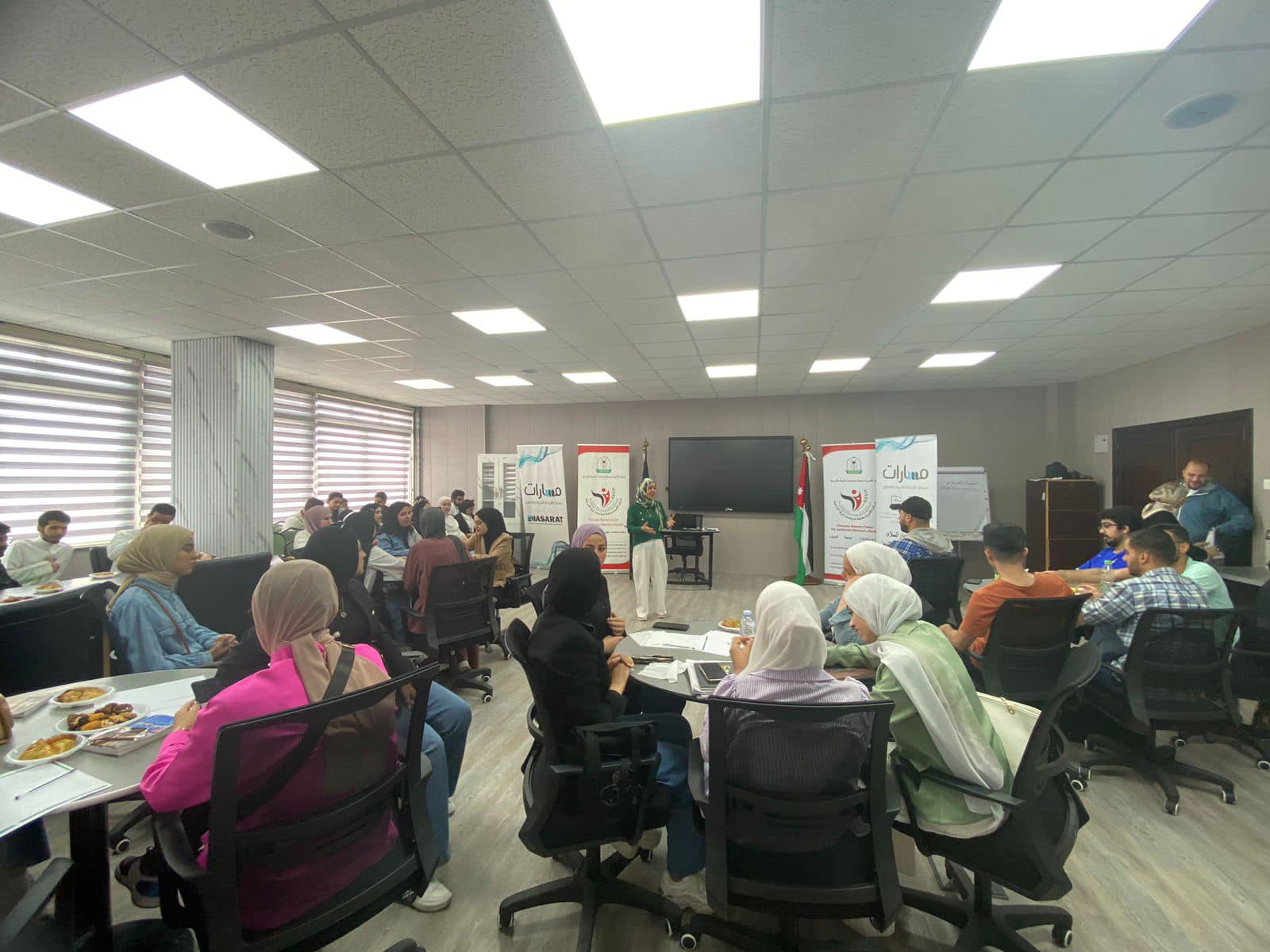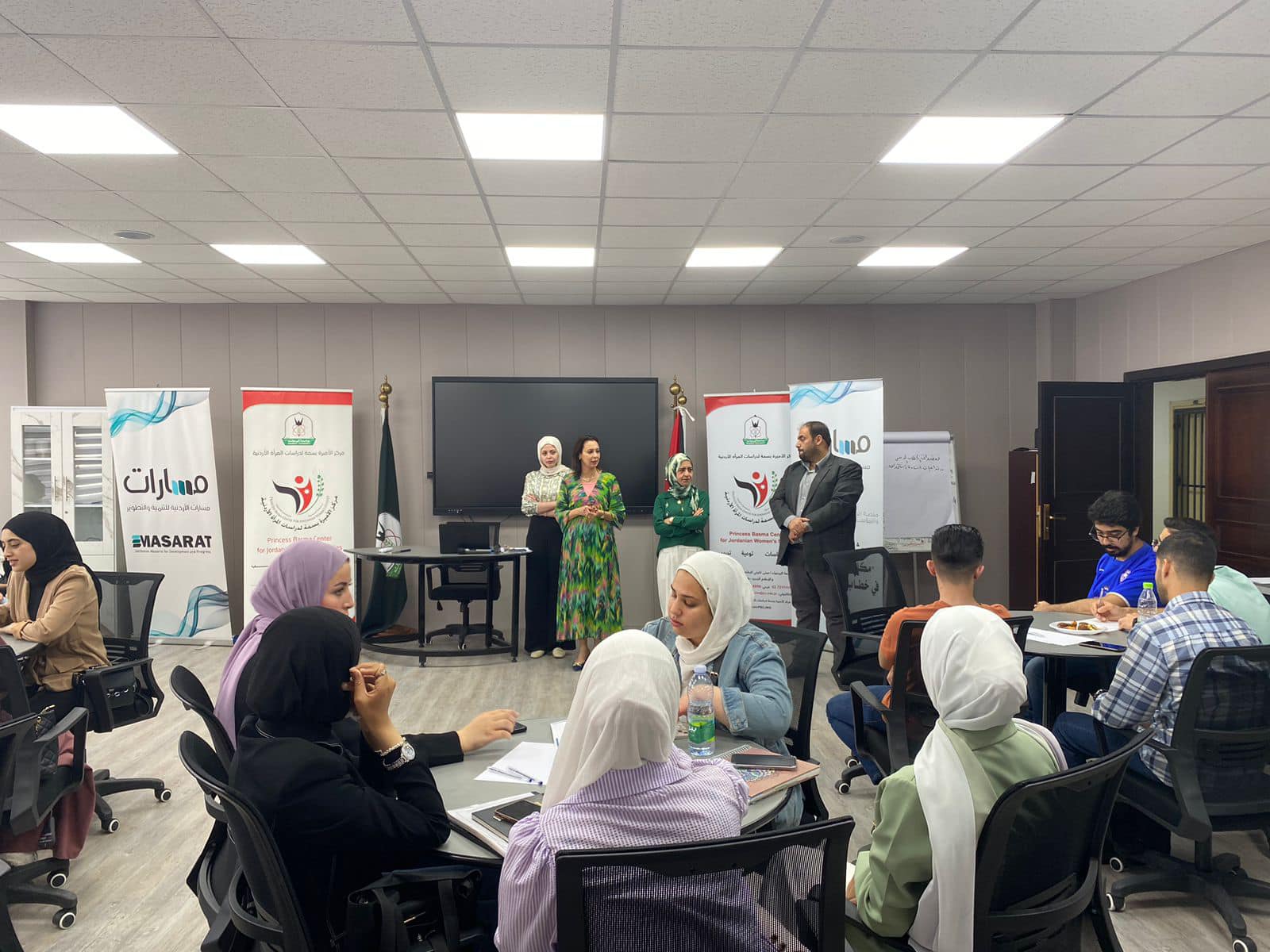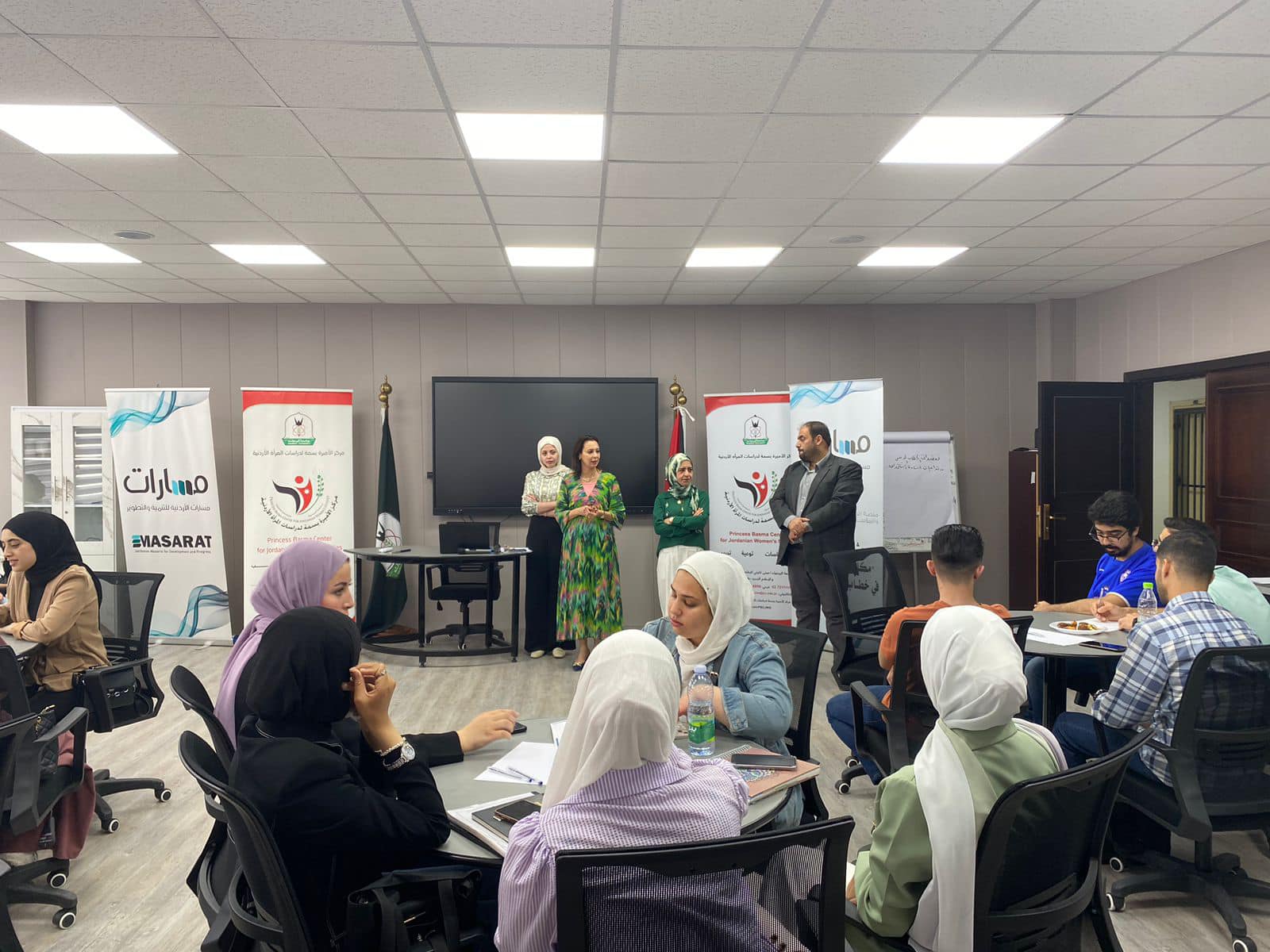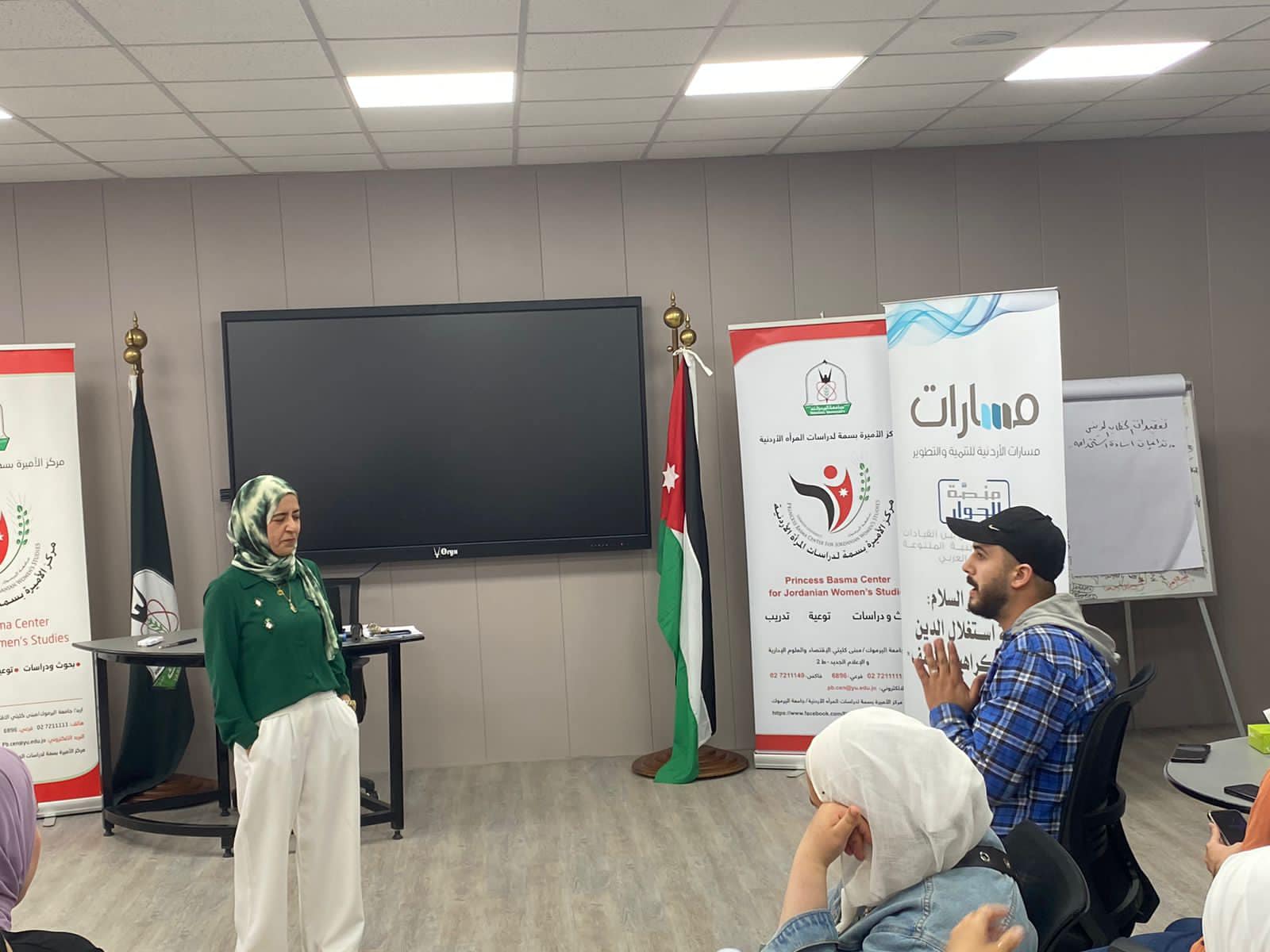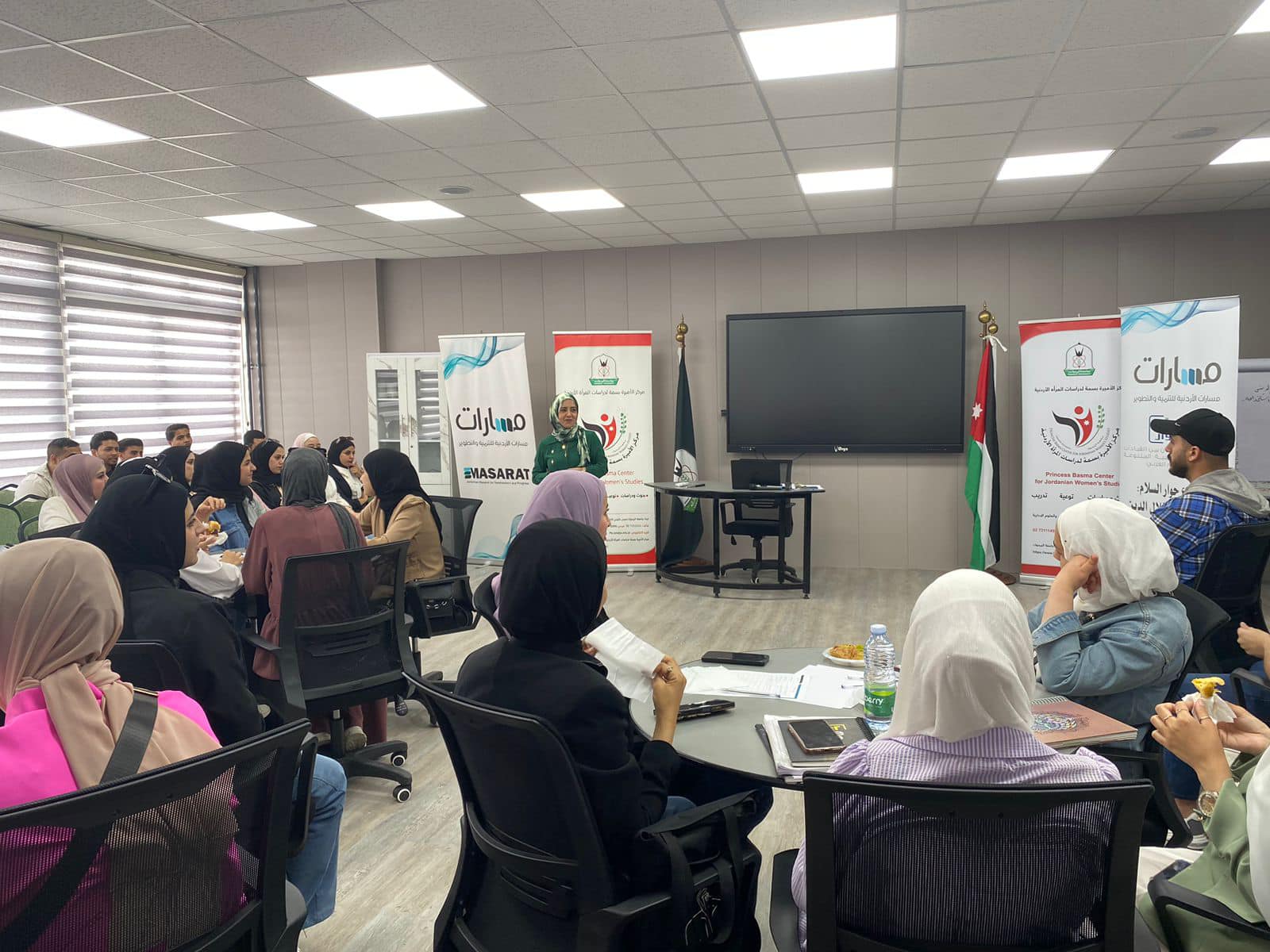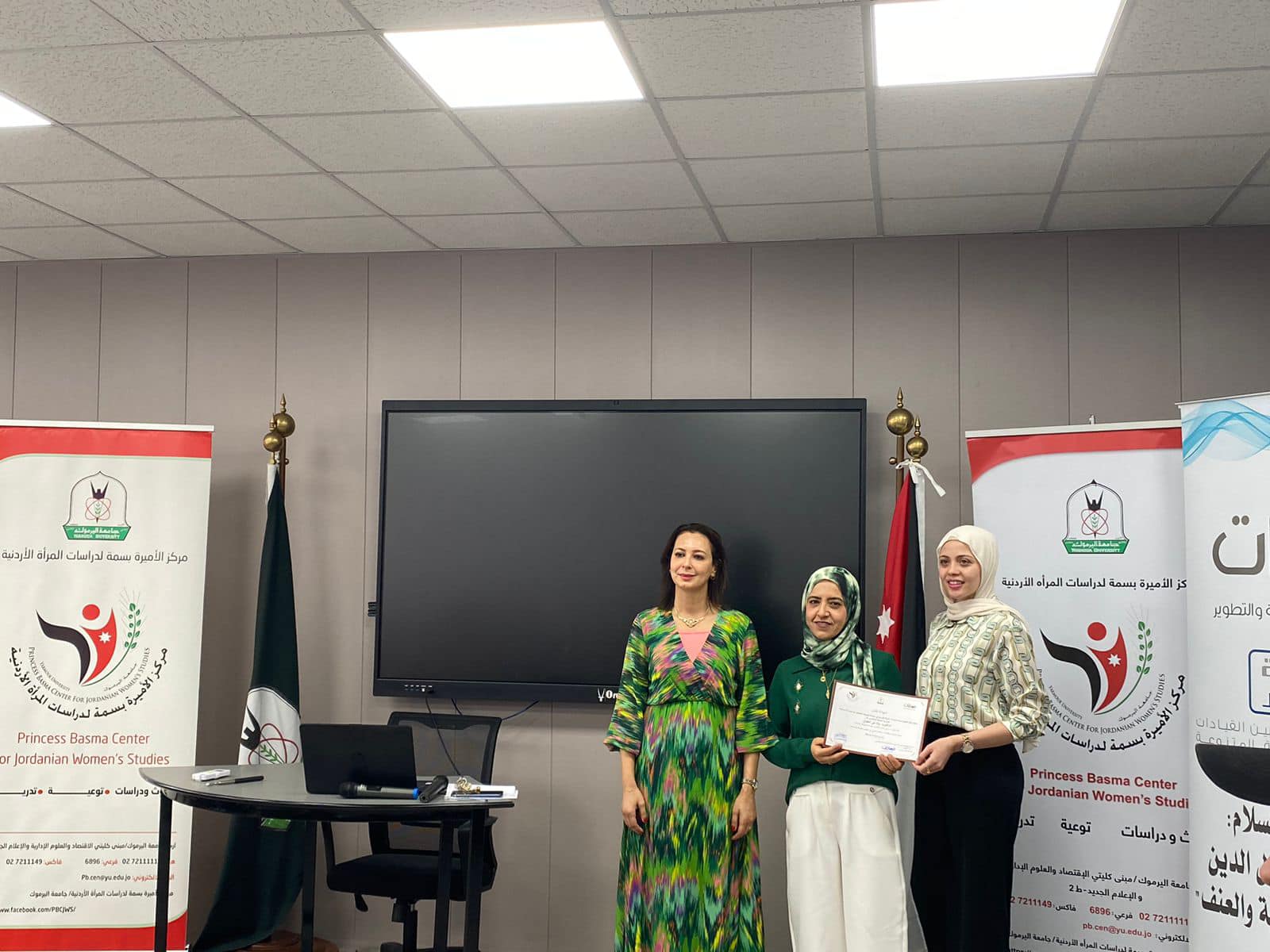
In collaboration with the Masarat Foundation for Development, the Princess Basma Center for Women's Studies conducted its fourth session under the fourth axis, "Raising Awareness and Enlightened Discourse," within the context of the "Hate Speech and Interfaith Dialogue" project.
During this session, Dr. Diala Al-Taani of the Department of Public Law/College of Law gave an interactive lecture covering a number of topics, such as:
- Definition of religious and belief freedom.
- Religious protection in compliance with national
- International texts and laws
Dr. Diala Al-Taani emphasized the importance of intelligent religious discourse and its potential to enhance communities. Following her definition of religious freedom, Dr. Diala Al-Taani reviewed the key legal texts addressing religious and belief freedom from national legislation (the Jordanian Constitution, the Penal Code, and the Press and Publications Law) and international conventions (the Arab Charter on Human Rights and the International Covenant on Civil and Political Rights).
It also clarified the definition of interreligious dialogue, defining it as the exchange of ideas, knowledge, and facts among followers of various faiths, with each side upholding its own beliefs in a respectful and understanding atmosphere for the benefit of humanity as a whole. She outlined the significance of enlightened discourse and the revival of religious discourse, which are two of the main factors propelling civilizations forward because they successfully counter extremism—all kinds of extremism. She also talked about hate speech, particularly against Islam and Muslims, as well as Islamophobia.
At the end of the session, she emphasized the need for educational institutions to address issues of human existence such as pluralism, diversity, dignity, and giving in addition to curriculum development and skill acquisition. Students who believe in human rights, regardless of their religion, should be fully aware of these issues.
